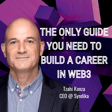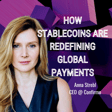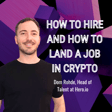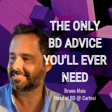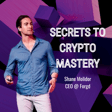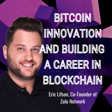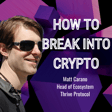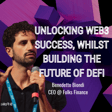
Leon Dolinar, Energi's VP of Engineering, and I might have discovered the best way to progress in your career in Web3
Behind the blockchain is a series of conversations with technology leaders who have built successful products, teams and careers in Web3. You will have the opportunity to understand how they were able to achieve their career goals, what skills they have learned, what mistakes and frustrations they might have and what advice they can share with you to help you achieve your own career goals.
In this episode, I speak with Leon Dolinar. Leon is the current VP of Engineering at Energi Core, a blockchain which is able to solve some very interesting challenges and has been able to eliminate 95% of all crime on the chain. Leon talked through some of the skills he learned which helped him to achieve his career goals and he talked through some brilliant advice for people looking to build a successful career for themselves in Web3.
